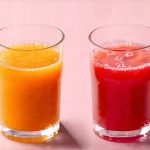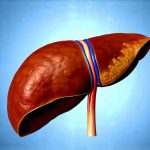Juice cleanses have surged in popularity as quick-fix solutions for detoxification and improved health. Often marketed with promises of rapid weight loss, increased energy levels, and digestive reset, they involve replacing solid foods with various fruit and vegetable juices for a defined period. While the appeal is understandable – who doesn’t want a simple route to wellness? – it’s crucial to understand whether these cleanses truly benefit digestion or if they might actually disrupt this vital bodily process. The idea of ‘cleansing’ often implies removing toxins, but our bodies are already equipped with incredibly efficient detoxification systems: the liver and kidneys. This article will delve into the impact juice cleanses have on your digestive system, examining both potential benefits and significant risks to help you make an informed decision.
Many proponents believe juice cleanses “rest” the digestive system by eliminating complex foods that require extensive breakdown. However, digestion doesn’t simply stop during a juice cleanse; it merely shifts focus. Your stomach still produces acids, your intestines continue peristalsis (muscle contractions to move food along), and your liver and kidneys remain hard at work processing whatever comes their way – in this case, primarily sugars from fruit juices. The absence of fiber is often the most significant disruption, impacting gut bacteria and overall digestive health.
What Happens to Digestion During a Juice Cleanse?
The digestive system is a complex ecosystem relying on a balance of nutrients, including fiber, protein, and fats. When you drastically reduce these elements and introduce primarily liquid sugars, several changes occur. The stomach’s production of hydrochloric acid can decrease due to lack of stimulation from solid food, potentially impacting nutrient absorption later on. Similarly, the intestines may become less efficient at moving waste through, leading to bloating or constipation for some individuals.
The gut microbiome – the trillions of bacteria residing in your digestive tract – also suffers. Fiber is a primary food source for these beneficial bacteria. Without it, their population can decline, potentially weakening immunity and increasing susceptibility to harmful bacteria. This imbalance isn’t just about discomfort; it impacts overall health as a significant portion of our immune system resides within the gut. Furthermore, relying solely on juice removes the need for the body to process different food groups, which could temporarily affect enzyme production necessary for proper digestion later when you reintroduce solid foods.
Potential Impacts: Positive and Negative
While often portrayed negatively, some individuals do report short-term positive effects from juice cleanses. These can include reduced bloating (though this is sometimes due to decreased stool volume rather than true detoxification), a temporary feeling of lightness, or increased hydration if the juices are water-based. However, these benefits are typically fleeting and don’t address underlying digestive issues. In many cases, any perceived improvement stems from eliminating processed foods, caffeine, alcohol, and sugar – changes that can be achieved through a balanced diet without resorting to extreme measures.
The negative impacts are more substantial and common. Beyond the gut microbiome disruption and potential enzyme reduction mentioned earlier, juice cleanses can lead to nutrient deficiencies. While juices contain vitamins and minerals, they often lack essential proteins, healthy fats, and complex carbohydrates needed for sustained energy and overall health. This deficiency can cause fatigue, weakness, irritability, and even impact cognitive function. Moreover, the rapid influx of sugars can spike blood sugar levels, followed by a crash, leading to mood swings and cravings. For individuals with pre-existing conditions like diabetes or hypoglycemia, these fluctuations can be particularly dangerous.
Considerations for Specific Digestive Issues
For people already dealing with digestive problems such as Irritable Bowel Syndrome (IBS) or Small Intestinal Bacterial Overgrowth (SIBO), juice cleanses are generally not recommended. The lack of fiber can exacerbate IBS symptoms like bloating and diarrhea, while the high sugar content in juices can feed harmful bacteria in SIBO, worsening the condition. Individuals with a history of eating disorders should also avoid juice cleanses due to their restrictive nature which could trigger unhealthy patterns.
It’s important to remember that digestion is deeply individual. What might be relatively harmless for one person could cause significant distress for another. Factors like age, pre-existing health conditions, and overall diet play a role. Even seemingly “healthy” juices can pose problems if consumed in excess or without considering individual tolerances. Focusing on sustainable lifestyle changes – incorporating more whole foods, staying hydrated, managing stress, and getting regular exercise – is far more effective for long-term digestive health than a temporary juice cleanse.
Reintroducing Solid Foods: A Crucial Step
If you choose to undertake a juice cleanse despite the potential risks (and after careful consideration of your individual health), reintroducing solid foods correctly is paramount. Abruptly resuming a normal diet can overwhelm the digestive system, leading to discomfort and setbacks. Start with small portions of easily digestible foods like steamed vegetables, broth-based soups, or cooked fruits. Gradually introduce more complex foods over several days, paying attention to how your body responds.
Listen to your gut! If you experience bloating, gas, diarrhea, or other digestive symptoms, slow down the reintroduction process and consult with a healthcare professional if needed. Remember that the goal isn’t simply to “cleanse” but to support long-term digestive health and overall well-being through sustainable practices.
Ultimately, the notion of needing to ‘cleanse’ your digestive system is often misleading. Our bodies are designed to naturally detoxify themselves when provided with proper nutrition and lifestyle choices. While a juice cleanse might offer temporary relief or a perceived boost, it rarely addresses underlying issues and can even disrupt the delicate balance of the digestive ecosystem.
Focusing on a balanced diet rich in whole foods, fiber, lean protein, and healthy fats remains the most effective and sustainable approach to supporting optimal digestion and overall health. Prioritizing mindful eating habits, adequate hydration, stress management, and regular physical activity will yield far greater long-term benefits than any quick-fix cleanse ever could.


















